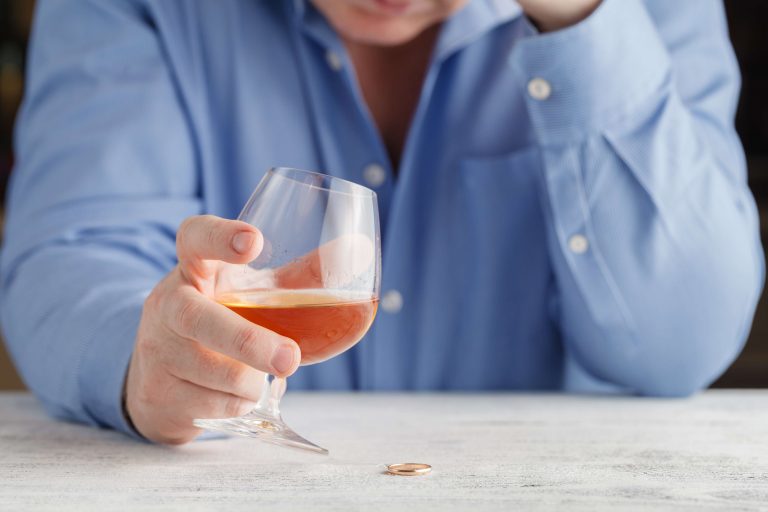If you’re concerned you may turn back to alcohol, or if you’ve already slipped this holiday season, treatment can help. For example, attending an intensive outpatient program is a great way to reconnect with your recovery before your relapse goes too far. Mental health struggles are another reason for the increased risk of relapse during the holidays. The season is full of experiences that tend to trigger existing disorders and aggravate symptoms. These experiences often leave you feeling uncomfortable and vulnerable, two emotions that are hard to handle. In fact, 64% of people with mental illness report that the holidays worsen their condition.
In the middle of a party where it seems like everyone is having fun and that alcohol and drugs are part of that fun, your reasons for staying sober can sometimes seem to just fade away. Make plans with your friends in recovery from your sober living facility, your 12-Step or other support meetings, exercise groups, work, or other places you have sober friends. The benefit of surrounding yourself with friends in recovery is that you mutually support one another. You may not be the only one trying to navigate the holidays without family. By spending time together, you create an all-new family that is built on love and the principles of recovery. The holidays are a challenging time of year emotionally for many people.
For as much as happy memories and goodwill are promoted, many people experience quite the opposite. One of the factors that cause so many negative experiences and emotions is the amount of alcohol and other substances consumed during this time of the year. Both the emotional factors and the increased availability of substances make the holidays a time of increased chance of relapse for individuals in recovery. For those in early recovery, holidays can create anxiety that may override new skills to manage cravings or urges. Healthy boundaries are physical and emotional limits that people set for themselves to safeguard their wellbeing. Unhealthy boundaries are thoughts and behaviors that can lead to manipulative and controlling relationships.
Make them feel included in plans and if you know they are struggling, suggest they attend a meeting or call a sponsor. If you or someone you love is in recovery and are worried about getting through the holidays, it’s important to remember that you are not alone. We have put together a list of tips and resources to help people in recovery from a substance use disorder get through the holidays. During the holidays, you’re more likely to feel pressure from family members and friends to be perfect. For example, you may feel like you need to give the perfect gift, host the perfect event, or that your life needs to meet certain expectations that your parents have.
Couple this departure from your routine with the way holidays tend to amplify difficult emotions and you’re left with a test of your recovery. Mental health struggles are another real risk of relapse during the holiday season. Combine that with the increase in alcohol use between November and January and there’s little wonder why people in recovery feel at risk of a relapse. It might feel like a drink or two will take the edge off of those holiday nerves but it’ll only set the vicious cycle off once again. Disconnections within the family setting are commonplace, but that doesn’t mean you, at this vulnerable time in your life, need to step into the fray. When conflicts arise, you may choose to dismiss yourself from the group until the trouble passes.

Rather, there are plenty of opportunities to dedicate your time and talents. By serving other people selflessly, you also give yourself the gift of not being lonely. The rewards https://ecosoberhouse.com/ of simple acts of kindness will go further than you think to help brighten other people’s lives. These acts of kindness will also bring benefits to you in your recovery.
If you are interested in starting a Family & Friends meeting in your local area, we would love to hear from you. Please click here to learn more about starting a Family & Friends meeting. Stay reframing holidays in early recovery in touch with your key supports, such as counselors, sponsors, mentors, or recovering peers. Identify risk factors that should be avoided and know how you will respond if they’re encountered.

Furthermore, you may be alone due to the loss of family members or because of your recovery needs. Even if being without your family is a choice made for your well-being, spending the holidays without family can still be difficult. For those of us in early recovery, the holidays can remind us of past rifts and wrongs, but they also present new opportunities for mending broken relationships. Healthy boundaries and clear communication can help start the holiday season with a clean slate for forging future connections. So whether or not your holidays are all the way happy, here’s to a holiday season that is healthy in recovery.
But you can’t gain and keep on weight from one meal and within the span of one day. You will probably experience a lot of irrational eating disorder thoughts throughout the day, and throughout the holiday season in general. These irrational, negative, unhelpful thoughts are also known as cognitive distortions. Mike crafted our innovative and person centred approach to addiction treatment. Mike’s experience in the addiction treatment sector encompasses his work as a nurse, psychotherapist and Chief Executive.
You must understand that these feelings are normal but don’t have to control you. In December 2020, 40 U.S. states saw increases in opioid-related mortality along with ongoing concerns for those with substance use disorders, according to the American Medical Association. Some individuals may begin taking new substances than their usual if they become difficult to access (I.E. Heroin instead of prescription opioids). Once they get sober, they’re left learning to deal with the emotions they spent years drinking away. Learning to handle these hard feelings is a vital part of maintaining long-term recovery.
| S | S | M | T | W | T | F |
|---|---|---|---|---|---|---|
| 1 | 2 | 3 | 4 | 5 | 6 | |
| 7 | 8 | 9 | 10 | 11 | 12 | 13 |
| 14 | 15 | 16 | 17 | 18 | 19 | 20 |
| 21 | 22 | 23 | 24 | 25 | 26 | 27 |
| 28 | ||||||
ইসলামী ব্যাংক ইন্সটিটিউট অব টেকনোলজি (আইবিআইটি), নেওয়া কর্ণার ৩য়, ৪র্থ ও ৫ম তলা, হুমায়ুন রশিদ চত্তর, সিলেট।
+৮৮০১৯৬৪০০০০৬৭
+৮৮০১৯৬৪০০০০৬৮
info@ibitsylhet.edu.bd
ibitsylhet2012@gmail.com
© ইসলামী ব্যাংক ইন্সটিটিউট অব টেকনোলজি, সিলেট কর্তৃক সংরক্ষিত।
Website Design and Developed by I ICTSYLHET.COM